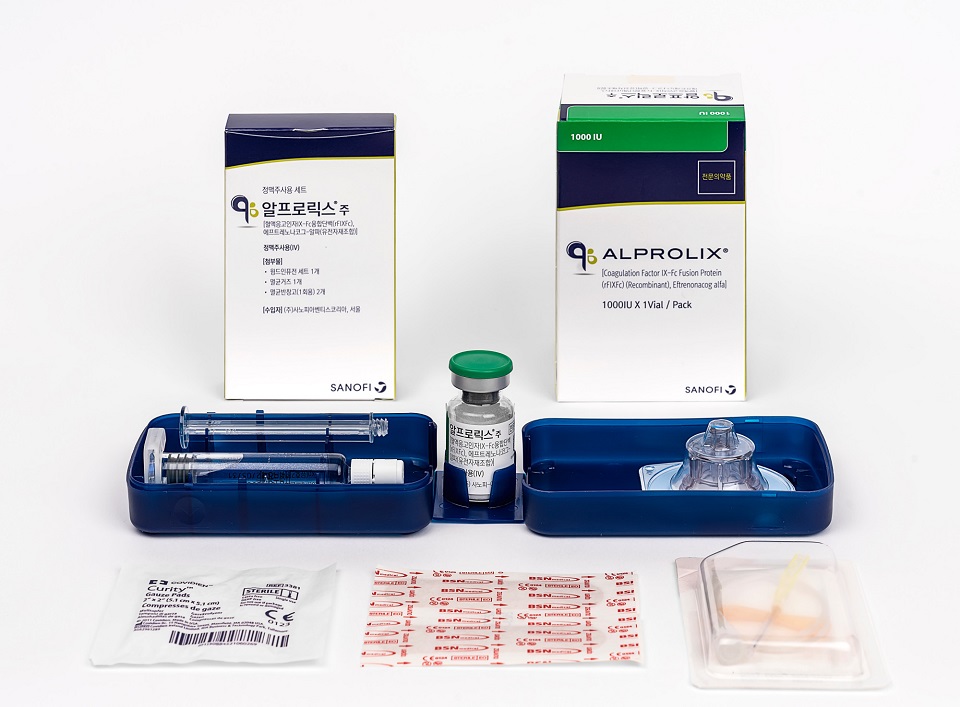Sanofi Genzyme said Thursday that it has confirmed improvement in bleeding, treatment compliance, and reduced dosage in the five-year real-world data study of its hemophilia B therapy, Alprolix.
In six U.S. hemophilia centers, the company conducted studies and analyzed 64 hemophilia B patients treated with Alprolix for more than six months. Hemophilia is a rare disorder where patients experience natural bleeding due to a lack of sufficient blood-clotting proteins. The World Federation of Hemophilia recommends using preventive treatments for hemophilic arthrosis.

Researchers found that the dosing interval was extended in 26 out of 32 patients, or 81 percent, who switched from existing treatment to Alprolix. The weekly dose fell by about 50 percent compared to conventional therapies and lasted until the end of the study.
Before participating in the study, 53 percent of these patients who received preventive treatment received drugs twice a week, but 69.8 percent of those administered with Alprolix required only once per week, and 20.8 percent of participants needed it once every two weeks.
Of the patients who took Alprolix from the beginning of the study, 17 percent extended the dosing period, and 74 percent maintained with the previous dosing period.
The research team also found that the annual bleeding rate dropped significantly in both severe and mild hemophilia patients taking Alprolix coherent to the results of phase 3 B-LONG and Kids B-LONG clinical trials.
The median treatment period for the 64 patients was 2.7 years, and 44 percent of them reported that they replaced the existing drug with Alprolix to ease the burden of treatment.
“This study has shown that Alprolix improved the bleeding symptoms of hemophilia B patients and enhanced the treatment convenience by reducing the use of the drug in real clinical settings,” said Hana Cho, medical director at Sanofi Genzyme. “We hope to provide tailored treatments for patients with Alprolix.”
The study results were published in the journal, Haemophilia, in October.

